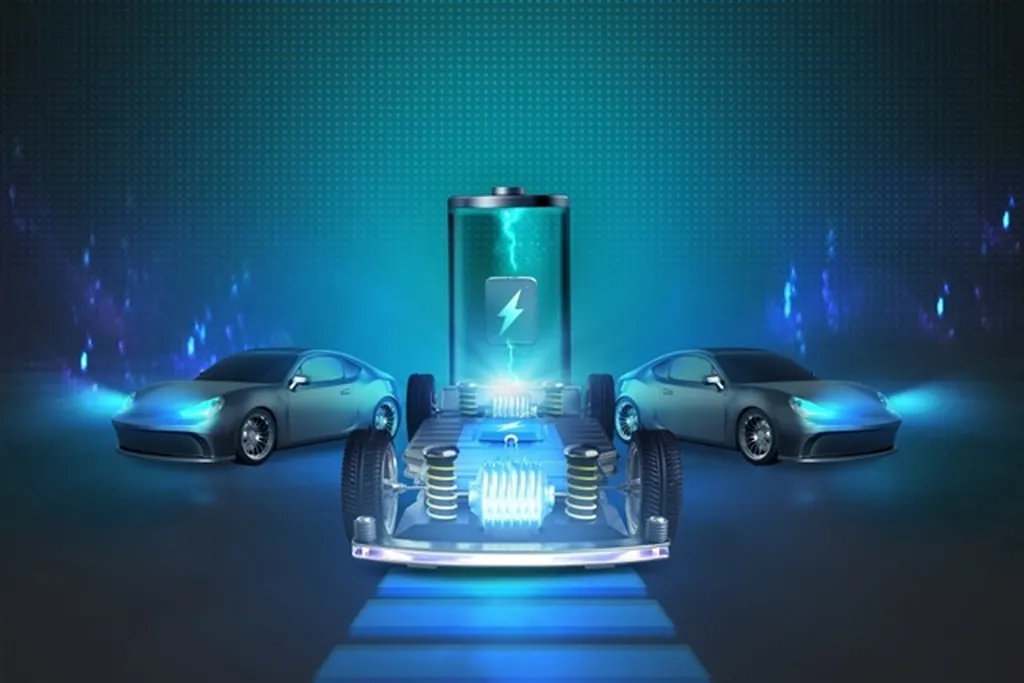In the quest for more efficient and cost-effective energy storage solutions, researchers have long been exploring the potential of lithium iron phosphate (LFP) cathodes. Known for their thermal stability, chemical robustness, and long lifespan, LFP cathodes have been a promising candidate for various energy storage applications. However, their low electronic and ionic conductivity, as well as challenges in achieving high packing density in thick electrodes, have limited their practical implementation. A recent study published in the journal “Small Structures” (formerly known as “Small Methods”) offers a novel approach to overcoming these hurdles, potentially revolutionizing the energy storage landscape.
The research, led by Seungmin Han from the Department of Energy Engineering at Hanyang University in Seoul, South Korea, introduces a gradient porosity LFP electrode design. This innovative approach aims to enhance Li-ion kinetics and electron transfer, ultimately improving the overall performance of LFP-based Li-ion batteries.
The study proposes an electrode with a high areal capacity of 6.3 mAh cm⁻² and an electrode density of 2.5 g cc⁻¹. The gradient porosity design mitigates binder migration, ensuring a uniform binder distribution that enhances Li-ion kinetics and adhesion strength between the electrode and aluminum current collector. By employing particles with short charge carrier pathways in the bottom layer and particles with a high tap density in the top layer, the researchers achieved facile Li-ion and electron transfer and easier electrode processing.
“This gradient porosity design is a significant step forward in addressing the challenges associated with LFP cathodes,” said Seungmin Han, the lead author of the study. “By optimizing the microstructure of the electrode, we can enhance the overall performance and stability of LFP-based Li-ion batteries, making them a more viable option for large-scale energy storage applications.”
The resulting gradient porosity electrode demonstrated excellent cycle stability over 100 cycles in full-cell operation. These findings provide valuable insights into scalable strategies for high-energy-density, cost-effective LFP-based Li-ion batteries, which could have profound implications for the energy sector.
The commercial impacts of this research are substantial. As the demand for renewable energy sources continues to grow, the need for efficient and reliable energy storage solutions becomes increasingly critical. LFP-based Li-ion batteries, with their inherent safety and long lifespan, are well-positioned to meet this demand. The gradient porosity design proposed by Han and his team could significantly enhance the performance and cost-effectiveness of these batteries, making them a more attractive option for grid storage, electric vehicles, and other large-scale applications.
Moreover, the microstructure engineering approach demonstrated in this study could inspire further innovations in electrode design. By optimizing the porosity and particle distribution within the electrode, researchers may uncover new ways to improve the performance of various battery chemistries, not just LFP.
As the energy sector continues to evolve, the need for advanced energy storage solutions will only grow. The research conducted by Seungmin Han and his team at Hanyang University represents a significant step forward in this field, offering a promising path toward more efficient, cost-effective, and reliable energy storage solutions. The findings published in “Small Structures” not only advance our understanding of LFP-based Li-ion batteries but also pave the way for future developments in the broader energy storage landscape.

